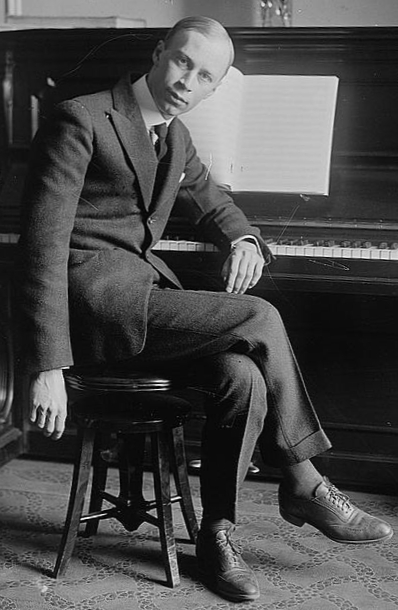Five pianists join Gergiev for Prokofiev mashup at BAM

Prokofiev’s complete piano concertos were performed by five pianists with Valery Gergiev leading the Mariinsky Orchestra Wednesday night at BAM.
Composer binges can be a little tedious, but once in a while the opportunity to hear the complete catalogue of a composer’s entries in a particular genre can be illuminating. Following up on last year’s success, the Mariinsky Theater on Wednesday night began a week-long residency at the Brooklyn Academy of Music with an eye-catching program, presenting all five of Prokofiev’s piano concertos with five different pianists.
Valery Gergiev has often used his American appearances to promote performers less established in the States, and did so again here, drawing artists from his professional sphere to create an impressive and varied lineup. George Li, the only American to medal at this summer’s Tchaikovsky Competition (which Gergiev oversees), made a strong first impression with his shining rendition of Concerto No. 1. Just twenty years old, Li already shows an impressive command of his instrument and thoroughly developed musicianship, playing with a splendid array of colors and a free but intelligent rubato. He thrilled in the soaring theme of the opening, and in its reprise just before the final bars.
Surprisingly, the Mariinsky Orchestra showed an unaccustomed lack of polish, with questionable intonation in the strings and a frequent sense of uneasiness in the ensemble. These shortcomings were only exacerbated by the dreary acoustics of the Howard Gilman Opera House, which left Mariinsky, an ensemble that has been known to shake the rafters at Carnegie Hall, sounding thin and gray.
The piano, at least, came through clearly. Alexander Toradze’s account of the second concerto was powerfully dark, at its start sounding almost painfully lost as it wandered through the impressionistic ripples of the opening. The first movement’s cadenza brooded stormily, sinking into Prokofiev’s pungent harmonies with little apology. Toradze felt somewhat less at home in the concerto’s more sprightly material, such as its cheeky Scherzo, but his dramatic sense made for a captivating and integral interpretation of the piece. Nowhere was he more effective than in the cadenza of the last movement, where, having come down from the torrid heights before, he wove an eerie calm with the repeated chiming motif.
Most familiar to American audiences was the evening’s third soloist, Daniil Trifonov, who did not disappoint, providing the program’s highlight with a memorable rendition of the Third Concerto. A master of the softer end of the piano’s range, he seemed to be taking advantage of the orchestra’s unusual lack of power, often sitting just barely above them. There is an amazing fluidity in his playing, as he is able to roll one phrase seamlessly into the next; but he can summon an impish ferocity, too, which earned him a round of applause between the first two movements. The two movements following were equally striking, as the second was hauntingly serene, showing off the soft touch and mirrored finish that are Trifonov’s trademark. In the finale every note seemed perfectly placed, even as the music spun towards a roaring finish.
As brilliant as the first three are, the Fourth and Fifth concertos are harder to relate to, which made for a bit of an anticlimax in Wednesday’s performance. In particular, one had to feel a little sorry for Sergei Redkin, the bronze medalist in this year’s Tchaikovsky piano division, who seemed to have drawn the short straw in performing Concerto No. 4. In this piece, one of a trove of left-handed piano concertos written for the wounded veteran Paul Wittgenstein, Prokofiev tried to compensate for the reduced sound of the piano by thinning the orchestration. Yet his writing for the soloist shows little ingenuity itself, relying on a plain directness that grows tiresome. Nonetheless, Redkin made the best of his assignment, playing with sharp energy, particularly in the sparkling Vivace finale.
The fifth and final completed concerto has more layers to it than its immediate predecessor but is similarly difficult to warm to. Sergei Babayan, who taught Trifonov at the Cleveland Institute of Music, gave an impressive performance that nonetheless often felt distant. The aloof, sometimes bombastic posturing of the first movement seems intent on keeping the listener at arm’s length, while the last ends with general, stomping bluster. The most winning of the five movements is the second, a brief theme and cheeky variations, which Babayan played with sly charm. The Larghetto featured the loveliest sound that Mariinsky was able to achieve all night, in a dreaming introduction over which the piano floated, lighter than air.
And yet even at their best, there was a dry drabness to the sound the orchestra was able to project into the hall, illustrating BAM’s unfortunate conundrum: across art forms, the institution offers some of New York’s most exciting programming, and yet the facilities don’t seem sufficient to do justice to the strength of its musical offerings.
The Mariinsky Theater’s BAM residency continues through February 28 with four ballet performances honoring the legacy of Maya Plisetskaya. bam.org.







Posted Feb 26, 2017 at 7:52 pm by Judy Wang
very informative